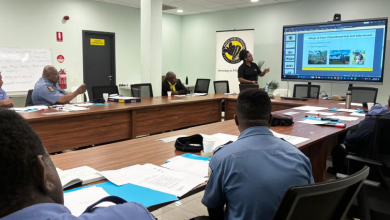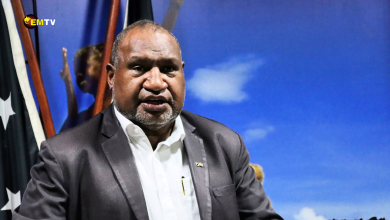Australian, New Zealand students kick off global climate change strike

By Charlotte Greenfield and Tom Westbrook
WELLINGTON/SYDNEY (Reuters) – Thousands of school students walked out of class across Australia and New Zealand on Friday as part of a global student strike against government inaction on climate change.
“Climate change is worse than Voldemort”, read one student’s handmade sign in Wellington, referring to the evil wizard in the hugely popular Harry Potter books and films. “The oceans are rising, so are we,” read another in Sydney.
Student protests were held in capitals and cities across Australia and New Zealand from Wellington to Melbourne and Sydney, drawing tens of thousands of people, with more planned through Europe, Asia and the United States later on Friday.
The marches are part of a worldwide student strike movement, which started in August 2018 when 16-year-old Swedish climate activist Greta Thunberg began protesting outside her parliament on school days. Norwegian lawmakers have nominated her for the Nobel Peace Prize.
“If we don’t do something, it’ll be our lives affected, not the 60-year-old politicians,” said Sydney student Callum Frith, 15, who was wearing his school uniform. “We need action.”
Elsewhere in Asia Pacific, more than 100 students planned to gather in Seoul for a protest. In Singapore, where there are strict laws regulating public assembly, youths planned a virtual campaign on social media.
“The government just needs to change some things, which is why if we go on strike on a school day then they’ll notice and they might actually do something about it,” said 14-year-old New Zealand student Inese, who did not want her surname made public.
New Zealand Prime Minister Jacinda Ardern, who has pledged NZ$100 million ($68 million) to reduce greenhouse gas emissions, supports to the student strikes, saying teenagers should not wait until they were old enough to vote to use their voice.[L3N21013U]
That contrasts with politicians in Australia and Britain who have rebuked them for cutting class.
“For action on issues that they think is important, they should do that after school or on weekends,” Australia’s Minister for Education Dan Tehan told reporters ahead of protests in Melbourne.
Wellington parent Alex, who marched beside his 11-year-old son, disagreed. “It’s a much better day of education…this is the greatest issue of our time,” he said.
Scientists say the burning of fossil fuels such as coal, releases greenhouse gases that trap heat and lift global temperatures, causing more floods, droughts, heatwaves and rising sea levels.
At the 2015 Paris climate conference, countries pledged to work to limit the rise to 2 degrees Celsius (35 Fahrenheit), a step that will require a radical reduction in the use of coal and fossil fuels.
(Reporting by Charlotte Greenfield in Wellington, Tom Westbrook in Sydney and Sonali Paul in Melbourne. Additional reporting by Jane Chung in Seoul and Aradhana Aravindan in Singapore; Editing by Michael Perry amd Sam Holmes)






